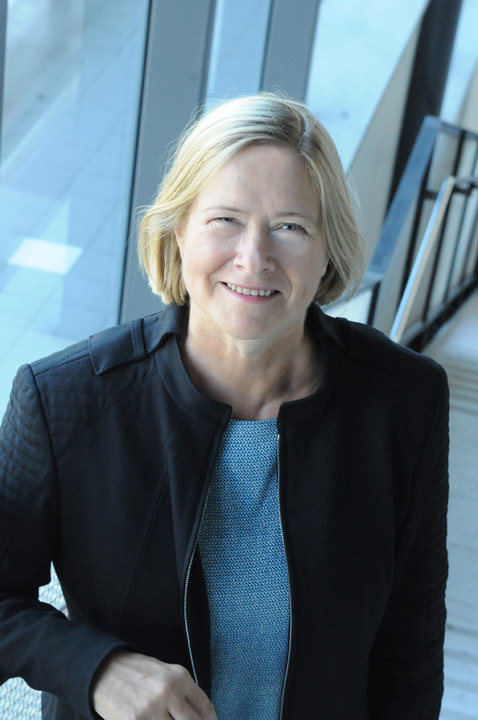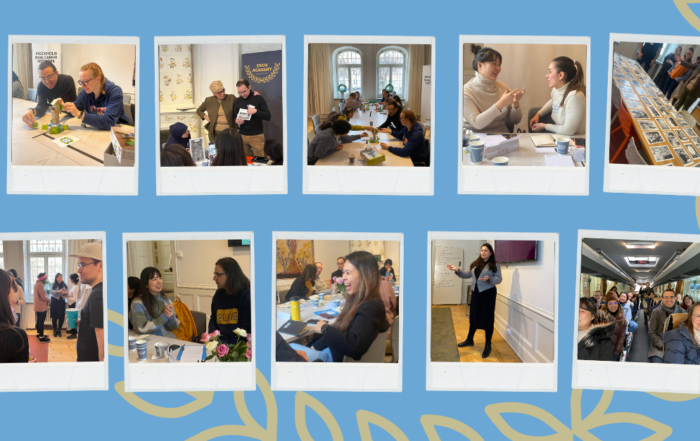

8 March, 2019
Interview with Professor Moira von Wright on gender equality
Today, on International Women’s Day, Stockholm Academic Forum has published a new report on gender equality for Stockholm Academia. Related to this we got the opportunity to interview Professor Moira von Wright on the subject.
Is it important to have women leaders in academia? If so, why?
It is important that diverse perspectives and experiences can emerge and enrich work in higher education. The fact that we have seen an increase in the proportion of female leaders in higher education has brought many good things, but the most important thing is that positions of leadership in the academy that used to be more or less closed to women have gradually become open to us. Inequality is no longer tolerated: We now ask about competence, not gender, when looking for a leader or a President. We turn to both women and men – to people. This, in turn, makes it possible for those who have a third gender identity to become academic leaders. Having more female academic leaders does not only mean more perspectives and experiences in leadership, it also means more role models for all the young people who study or work in higher education.
Have you developed any particular strategy to increase gender equality at the institutions you have worked at or led?
I have wanted to remind everyone working together in higher education that we have a common aim that goes beyond gender, identity, ethnicity, age, language, and similar categories: We are here because of a shared interest in knowledge development and education. It is important to strive toward gender parity in management groups as well as in the workplace and to take gender into account in recruitment, so as to balance gender distribution.
Manageable working hours: Trying to schedule meetings between 9am and 3pm, times that allow parents of small children and those who take care of relatives to hold university positions without adversely affecting their families.
Transparent recruitment processes: Positions and responsibilities should be advertised in plain terms, as well as what the requirements are and how decisions are made so as to avoid ”Old Boys’ Club” politics.
An effective gender equality policy contributes to an open, inclusive environment in which all different perspectives and skills are made use of and valued.
Why do you think Sweden and Stockholm rank high for gender equality in academia?
Swedes are careful to create the structural conditions for gender equality and take gender equality work very seriously. Childcare, health care, and family policies help provide favorable conditions for women to hold challenging positions of responsibility and leadership positions in the academy. Sweden is a leading country when it comes to female university Presidents.
What do you think are the biggest obstacles to increased gender equality in leadership positions in higher education?
There are several obstacles: hard structures and unquestioned expectations, both inside and outside the university. The tradition of “primus inter pares” – that the “first among equals” should emerge as a leader naturally contributes to keeping alive a tradition that perpetually rewards the same old skillsets. But working toward gender equality does not mean that we should dispense with quality requirements in education and research. Therefore, we need to have an active and qualified dialogue on quality and quality measures so that they do not unilaterally favor certain categories, traditions, or actions. Academic traditions – for better or for worse – have been around for hundreds of years and we have to proceed carefully so as not to throw out the baby with the bath water.
You are going to be the first woman President at Åbo Akademi. How do you feel about it?
First and foremost, I am honored to have been appointed President of Finland’s Swedish University, Åbo Akademi. Åbo Akademi has raised its profile as a bold, boundary-breaking university in recent years so it is perhaps not so strange that they saw the possibility to break the tradition of a male, internal candidate for President when the opportunity arose!
8 March, 2019
Interview with Professor Moira von Wright on gender equality
Today, on International Women’s Day, Stockholm Academic Forum has published a new report on gender equality for Stockholm Academia. Related to this we got the opportunity to interview Professor Moira von Wright on the subject.
Is it important to have women leaders in academia? If so, why?
It is important that diverse perspectives and experiences can emerge and enrich work in higher education. The fact that we have seen an increase in the proportion of female leaders in higher education has brought many good things, but the most important thing is that positions of leadership in the academy that used to be more or less closed to women have gradually become open to us. Inequality is no longer tolerated: We now ask about competence, not gender, when looking for a leader or a President. We turn to both women and men – to people. This, in turn, makes it possible for those who have a third gender identity to become academic leaders. Having more female academic leaders does not only mean more perspectives and experiences in leadership, it also means more role models for all the young people who study or work in higher education.
Have you developed any particular strategy to increase gender equality at the institutions you have worked at or led?
I have wanted to remind everyone working together in higher education that we have a common aim that goes beyond gender, identity, ethnicity, age, language, and similar categories: We are here because of a shared interest in knowledge development and education. It is important to strive toward gender parity in management groups as well as in the workplace and to take gender into account in recruitment, so as to balance gender distribution.
Manageable working hours: Trying to schedule meetings between 9am and 3pm, times that allow parents of small children and those who take care of relatives to hold university positions without adversely affecting their families.
Transparent recruitment processes: Positions and responsibilities should be advertised in plain terms, as well as what the requirements are and how decisions are made so as to avoid ”Old Boys’ Club” politics.
An effective gender equality policy contributes to an open, inclusive environment in which all different perspectives and skills are made use of and valued.
Why do you think Sweden and Stockholm rank high for gender equality in academia?
Swedes are careful to create the structural conditions for gender equality and take gender equality work very seriously. Childcare, health care, and family policies help provide favorable conditions for women to hold challenging positions of responsibility and leadership positions in the academy. Sweden is a leading country when it comes to female university Presidents.
What do you think are the biggest obstacles to increased gender equality in leadership positions in higher education?
There are several obstacles: hard structures and unquestioned expectations, both inside and outside the university. The tradition of “primus inter pares” – that the “first among equals” should emerge as a leader naturally contributes to keeping alive a tradition that perpetually rewards the same old skillsets. But working toward gender equality does not mean that we should dispense with quality requirements in education and research. Therefore, we need to have an active and qualified dialogue on quality and quality measures so that they do not unilaterally favor certain categories, traditions, or actions. Academic traditions – for better or for worse – have been around for hundreds of years and we have to proceed carefully so as not to throw out the baby with the bath water.
You are going to be the first woman President at Åbo Akademi. How do you feel about it?
First and foremost, I am honored to have been appointed President of Finland’s Swedish University, Åbo Akademi. Åbo Akademi has raised its profile as a bold, boundary-breaking university in recent years so it is perhaps not so strange that they saw the possibility to break the tradition of a male, internal candidate for President when the opportunity arose!





